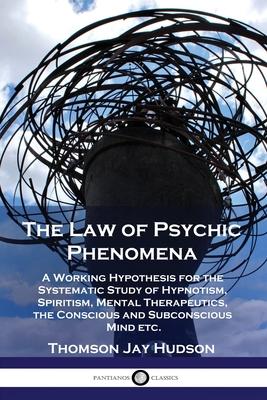Thomson Jay Hudson attempts to explain mental phenomena in a way which reconciles with the physical sciences; phenomena such as hypnotics, spiritual visions, subjective memories, and the subconscious mind.
Hudson was fascinated in how the trances of those under hypnosis resembled the spiritual mediums that purportedly could communicate with ghosts and spirits from the beyond. Based on these and other observations, a theory that humans have at their disposal two minds, each capable of different capacities and powers of mental utility. Over time, Hudson thought argument about the nature of mind to be irrelevant - he considered the two minds hypothesis to be irrefutable in the face of psychic phenomena; all men have an objective conscious mind, and a subjective unconscious mind.
The spiritism movement, and general interest in psychics, reached ever-greater heights towards the end of the 1800s. The Law of Psychic Phenomena, published in 1893, summarizes the popular phenomena and strange mental occurrences that had captured popular interest in the foregoing years. Though much of Hudson's work on spiritualism and communication with ghosts is disregarded by modern science, his notions of human consciousness - the two minds theory - was influential, and would inspire further researches by psychologists and mental researchers.
